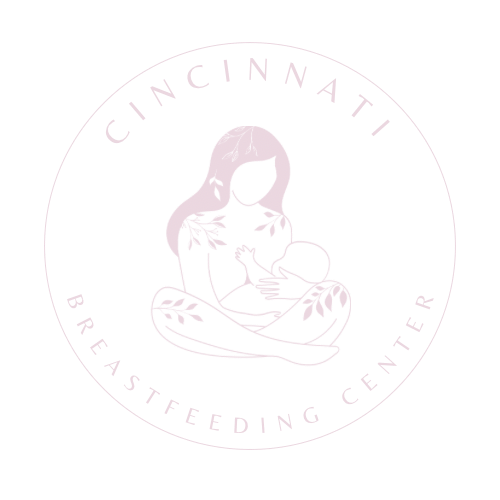Bottle Refusal Help
Working with a lactation consultant on
bottle refusal help is crucial because we understand the complexities involved and can offer specialized guidance tailored to your baby's needs. At CBC, we're here to help you navigate the journey of getting your baby comfortable with bottle feeding. We understand the stress of heading back to work and worrying if your baby will take the bottle. We know that pushing too hard can sometimes make things more challenging, so we take a gentle, step-by-step approach that respects your baby's pace. Like you, many moms have struggled with finding the right bottle and dealing with their baby's hesitation. It can be frustrating when you've tried different solutions and nothing seems to click. You've probably spent countless hours searching for solutions online and just ordered your fifth bottle, hoping this one will finally do the trick. You might think babies would always want milk, right? But for some little ones, even the milk itself can stress them out when it comes to bottles. Rest assured, we're here to offer the support and guidance you need to help your baby feel comfortable with bottle feeding.
Bottle Feeding Education
- We focus on accepting the bottle nipple and collar without milk to reduce stress and build familiarity.
- We get the baby comfortable with seeing the bottle during non-feeding times, like at the changing table or during playtime. This gradual exposure helps ease their acceptance of the bottle nipple.
- We will identify alternative feeding methods that the baby accepts aside from breastfeeding. We also will explore different bottle types beyond conventional recommendations for breastfed babies.
- We will outline strategies for the upcoming week so you feel fully supported in taking what you learned and seeing results for your baby. While there's no fixed timeline, achieving bottle acceptance typically requires a minimum of two weeks.
First Visit Expectations
- We'll begin by focusing on helping your baby accept the bottle nipple and collar without milk, starting with gentle exposure during non-feeding times like at the changing table or during playtime.
- We focus on creating a calm, supportive environment during bottle feeding to make it a positive experience for both you and your baby.
- If your baby shows distress at the sight of the bottle, we'll take a step back and work on gradually acclimating them to its presence, ensuring a slow and gentle approach to build familiarity and reduce stress.
- Throughout the bottle refusal help consultation, we'll tailor our approach to your baby's specific responses and needs, aiming to establish a personalized "bottle boot Camp" strategy that addresses their challenges with bottle refusal, particularly if you're preparing to return to work.
Common Bottle Feeding Challenges
We understand the stress of dealing with a baby who refuses bottles. You want the reassurance that your baby will be fed while you're at work, without the added worry and stress. At CBC, one of the big challenges we often deal with in these
bottle refusal consults is when babies just won't take the bottle, especially if they've been mostly breastfeeding. It can be frustrating because you know they need to take a bottle for daycare or other times you're away. Surprisingly, sometimes it's not the bottle itself that's the problem, but the milk inside that stresses them out! In fact we had a mom who came to us whose baby was having a tough time bottle feeding as she prepared to return to work and send him to daycare. After working with her with several strategies, including exercises at home and our bottle boot camp approach, he is now able to take 4 ounces at a time from Dr. Brown’s neck bottles. This was a big improvement from before when he could barely manage a few sips. There's no
bottle refusal challenge too tough for us. We've navigated some of the most intricate cases, but our commitment remains the same: we're here to find what works best for your little one. It takes patience, but at CBC we are here to help you figure it out.
Our Bottle Refusal Help Specialists
At CBC, we want you to know that while we're recognized experts in breastfeeding support, we're also dedicated specialists in handling bottle feeding challenges. It's a natural extension of our commitment to comprehensive infant feeding care. Personally, we've pursued additional training specifically focused on addressing
bottle refusal, alongside collaborating with skilled professionals in this field. This
bottle refusal help
expertise uniquely qualifies us to guide you through overcoming bottle acceptance hurdles with your baby. Our goal is to ensure that when you return to work, you can feel confident that your baby will be well-fed and content in your absence. That's a key part of what sets us apart in providing holistic
bottle refusal help for moms and their little ones.
Testimonials
Vitalia helped me SO much! She gave me new insights, helped recognize one twin needing additional support with craniosacral therapy and eased my mind. You won't be disappointed!
J. R.
Working with Vitalia has saved my breastfeeding journey! I truly look forward to my appointments with her because I know she will do everything she can to help me meet my breastfeeding goals.
Carlie
Vitalia just has this wonderful energy about her that helps you feel calm even in the presence of breastfeeding frustration. I am so thankful that I went to see Vitalia.
Janice
Quick Tips for Bottle Refusal
- Experiment with various shapes and nipple materials to find one your baby prefers.
- Test different milk temperatures—some babies prefer warmer milk.
- Experiment with holding positions to find one that is comfortable and soothing for your baby.
- Let them explore the nipple without anything in it.
- Engage your baby with toys or gentle singing while offering the bottle to reduce resistance.
- Dip the bottle nipple into breast milk to show them milk can also come from the bottle.
- Have someone other than the primary caregiver offer the bottle to avoid associations with breastfeeding.
- Remain calm during feeding attempts to avoid transferring anxiety to your baby.
Additional Resources
Frequently Asked Questions
-
What are common reasons a baby might refuse a bottle?
The most common reason is waiting too long to introduce the bottle or not maintaining the skill. Occasional bottle refusal can also be due to functional challenges with feeding.
-
How can I tell if my baby is ready to transition from breast to bottle?
We recommend early introduction of bottles between 2-4 weeks.
-
What techniques can help encourage my baby to take a bottle?
Early introduction, frequent practice, and continuing the skill are key. These techniques will help most babies transition smoothly from breast to bottle.
-
How long does the transition from breast to bottle typically take?
Transitioning from breast to bottle is usually a seamless process. However, if bottle refusal occurs, it can take longer for your baby to happily accept and feed from a bottle. With bottle refusal, it can take at least 2 weeks to see progress once you start using specific strategies.
-
What types of bottles and nipples are recommended for breastfed babies?
Here are my top bottle recommendations for breastfed babies:
- Pigeon SS flow nipples
- Lactation Hub gentle flow bottles
- Dr. Browns narrow neck bottles with "P" nipples
For bottle refusal, it really depends on the baby which bottle will be the best to start with.
-
Are there specific times of day that are better for introducing a bottle to a breastfed baby?
Whatever time works best for you! There isn't a perfect time; it's all about what fits into your schedule.
-
How can a lactation consultant support me in the bottle refusal and transition process?
For babies experiencing bottle refusal, we take a personalized approach to support them in learning bottle-feeding skills. This includes a comprehensive feeding assessment using the bottles you currently use, an oral assessment to evaluate function, and collaborative efforts to enhance bottle feeding. We'll explore various bottle options and create a tailored plan to help your baby accept the bottle more readily.
Request an Appointment
We prioritize your well-being and aim to empower you with the knowledge and skills necessary for a positive breastfeeding experience. No matter where you are on your breastfeeding journey, our
bottle refusal help
services are here to support you -judgment free. Please fill out the form below to request an appointment and we will contact you within 24 hours.
Thank you for contacting me. I will get back to you as soon as possible.
Oops, there was an error sending your message. Please try again later or call me to schedule an appointment.
About Cincinnati Breastfeeding Center
We understand that breastfeeding and lactation can be a deeply personal journey and sometimes challenging journey. We are here to support you every step of the way .
All Rights Reserved | Website Design By Toucan Digital Marketing




